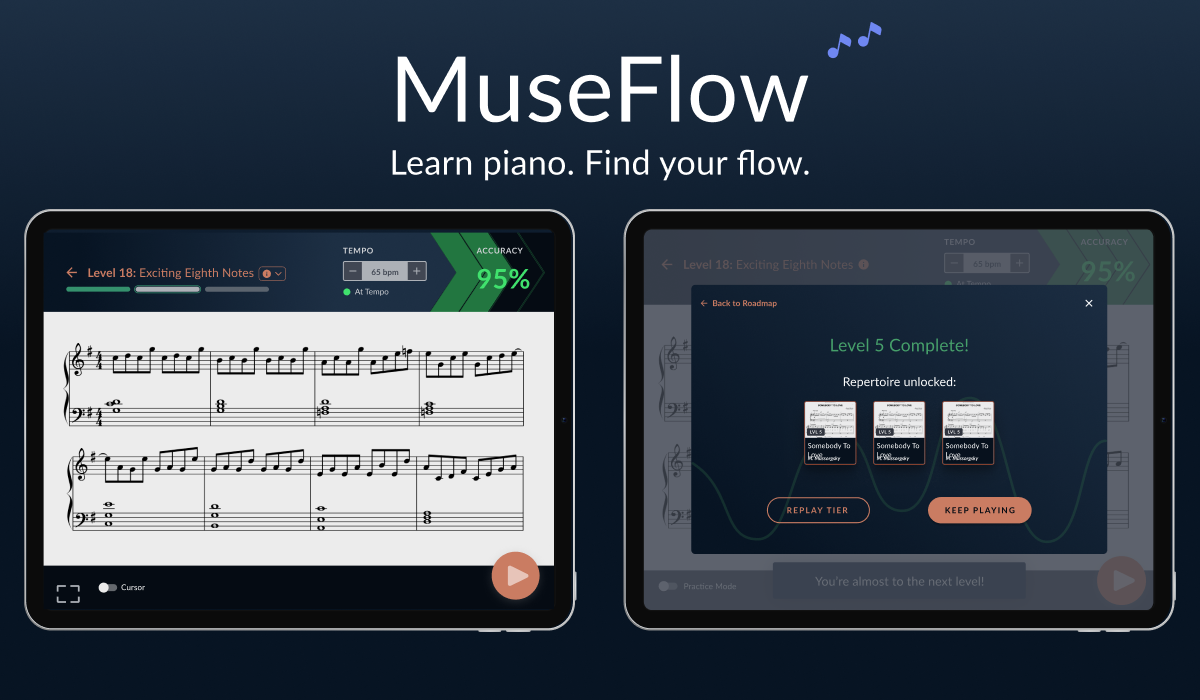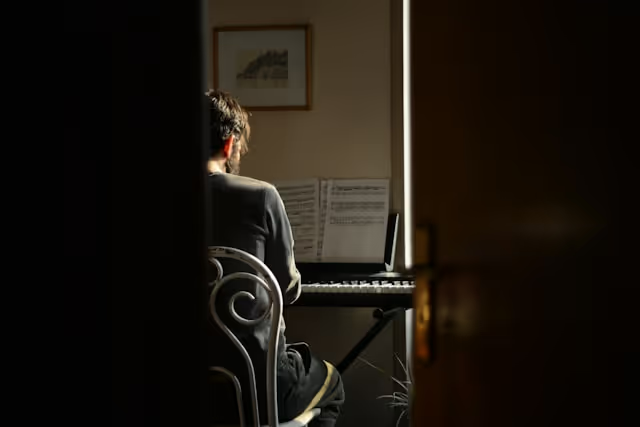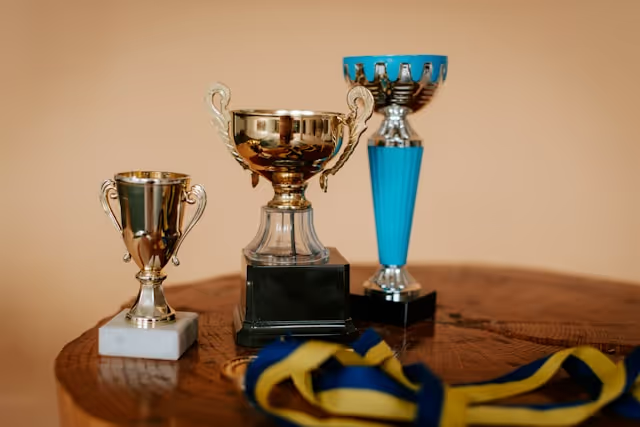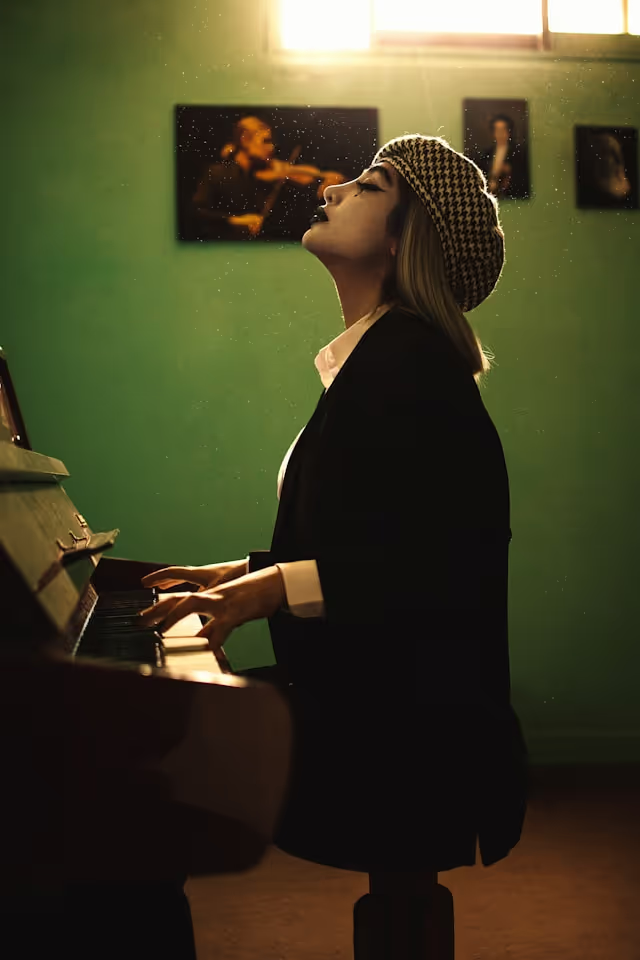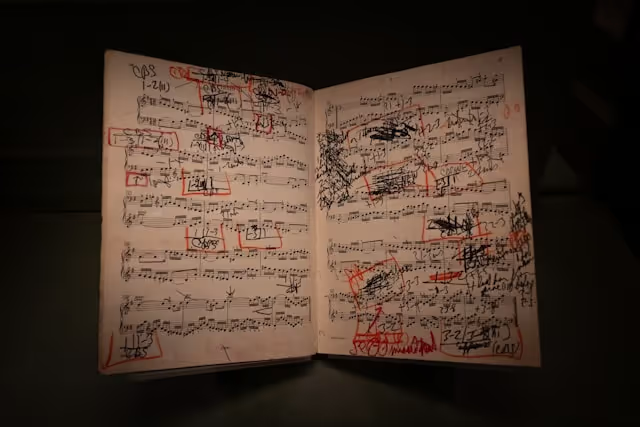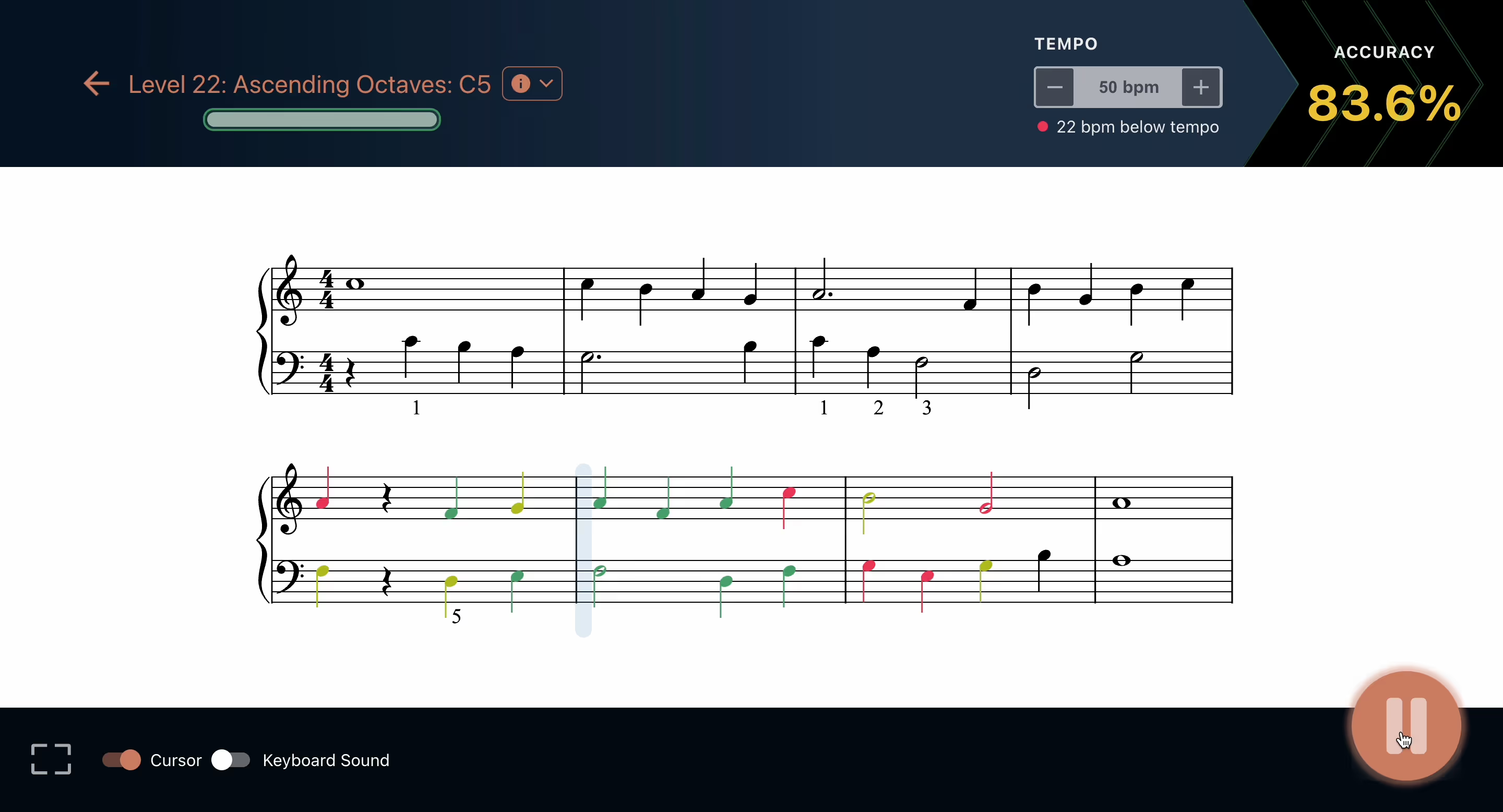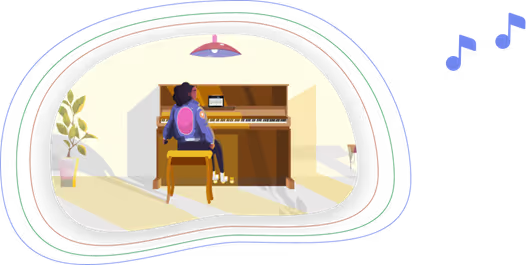Can I Teach Myself to Play the Piano with AI?
Some people might be skeptical if they could teach themselves how to play piano with AI. MuseFlow makes it easy for you by having artificial intelligence and machine learning serve the process of learning in two unique ways - music generation AI, and pattern recognition machine learning. It does the work for you to make learning a lot more fun, effective, and efficient. It does this by incorporating AI into the core of its pedagogy. The folks over at MuseFlow are making efforts to improve their algorithms every single day. Let’s take a deeper dive into this, and how artificial intelligence and machine learning are improving the way we learn piano.
Try MuseFlow today. It's free for 7 days!
Music Generation AI
There are few music apps out there that have generative AI imbedded within them. MuseFlow’s approach to learning involves giving you music you’ve never seen before, that never repeats, and is at your level of skill. You can choose from a myriad of levels on the level roadmap. Unit one starts with just one note, three rhythms, and two hands, and ends with two octaves (14 notes), four rhythms, and two hands. But how does MuseFlow give you music that never repeats? Surely that would be impossible with the amount of music that would need to be written!
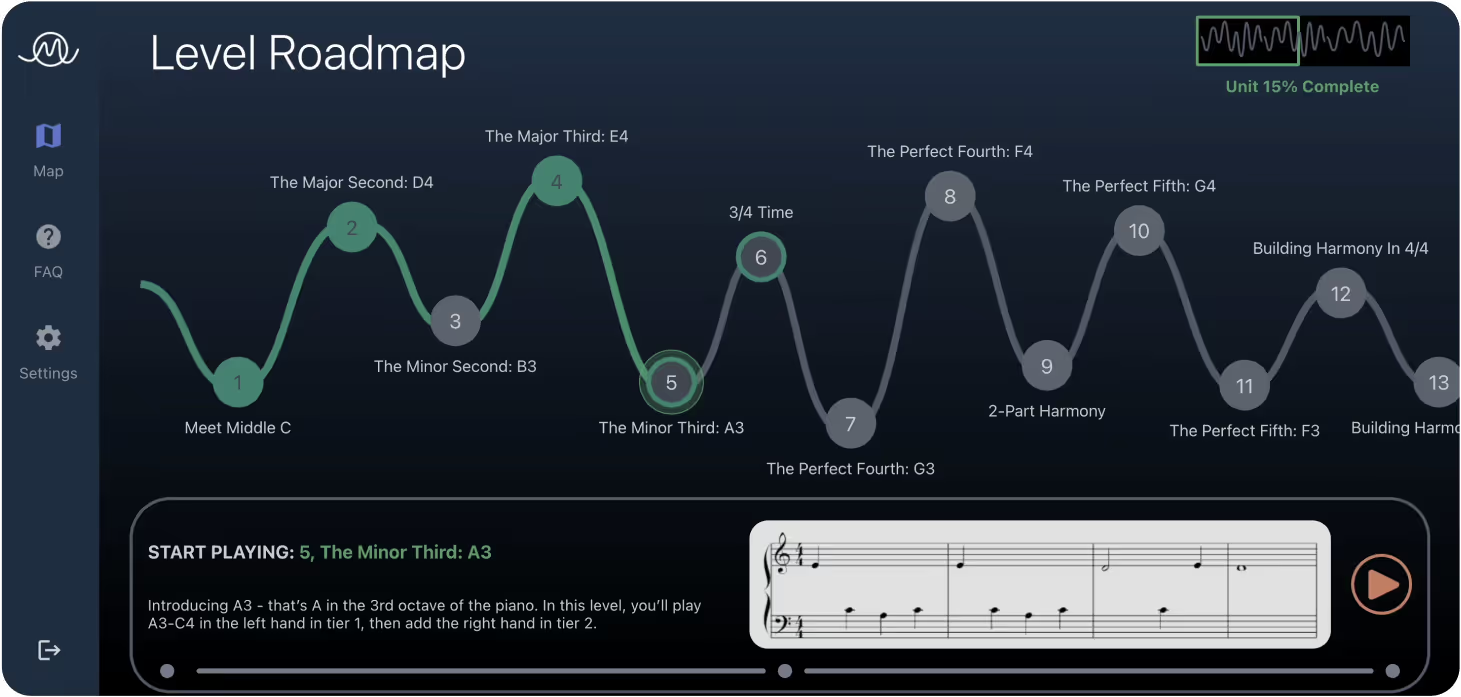
The team over at MuseFlow is constantly improving its music generation artificial intelligence algorithm so that it gives you the best quality sheet music as a constant stream until you pass the level. By using generative AI for sheet music, MuseFlow’s team sets the parameters for each level, then unleashes the artificial intelligence to start generating music for you to play!
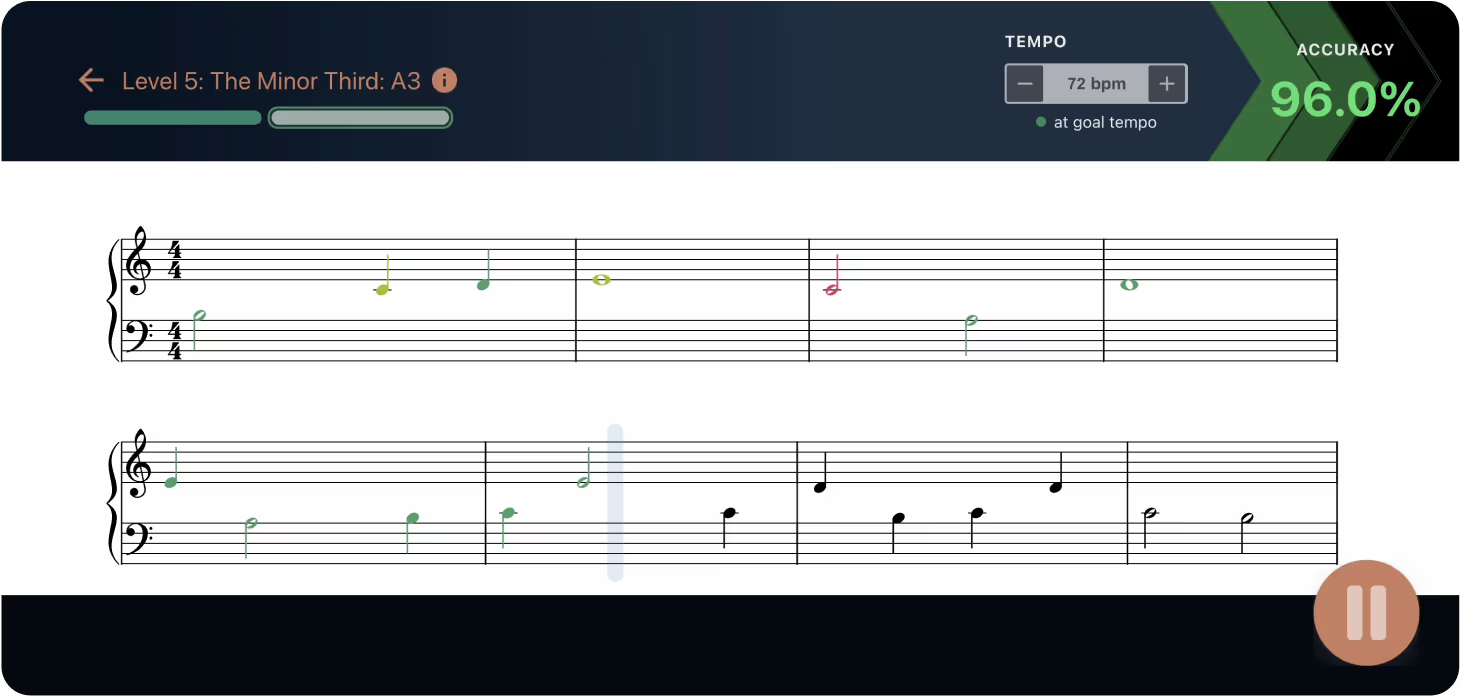
MuseFlow’s team is constantly training the AI with what they call, “Phrase Tinder”. If a phrase of music passes the rigorous tests of it sounding good enough to play and is exercising the new skill of a certain level, they swipe right. If a phrase is not good enough to play or isn’t useful, they swipe left. This method of training allows the computer to understand what is good and what is bad so it can create new and original pieces that fit within the guidelines of the curriculum, and are fun to play!

Pattern Recognition AI & Machine Learning
As you play, MuseFlow can see what you’re playing in relation to the music that’s on the screen. If you’re consistently messing up a note or rhythm, or even a series of notes or series of rhythms, it will gently give you more phrases of music that have those patterns in them. It can even recognize the intersection of rhythms and notes! It does this all in the background so your flow isn’t interrupted. You as the student wont even know it’s going on.
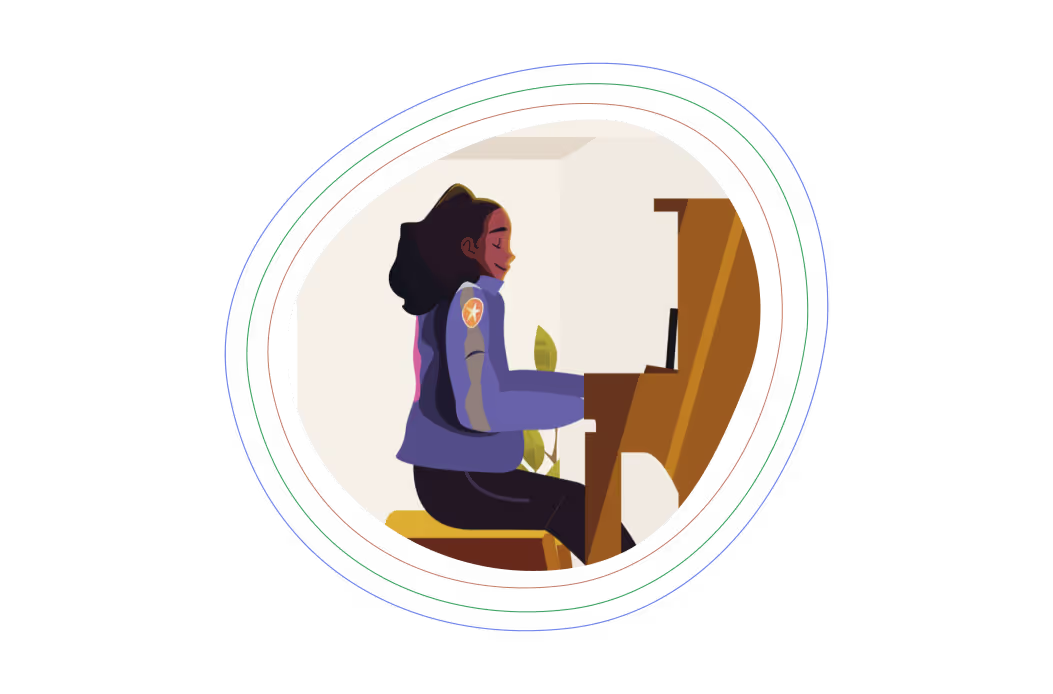
This teaching method enables MuseFlow to monitor each micro-skill you learn, such as individual notes and rhythms, along with their various combinations. MuseFlow adjusts the music and increases exposure if it detects that your proficiency in any specific micro-skill is lower than the others. Once you effortlessly and unconsciously bring that micro-skill up to standard with the rest, MuseFlow reduces its exposure back down to parity with the other micro-skills it is tracking.
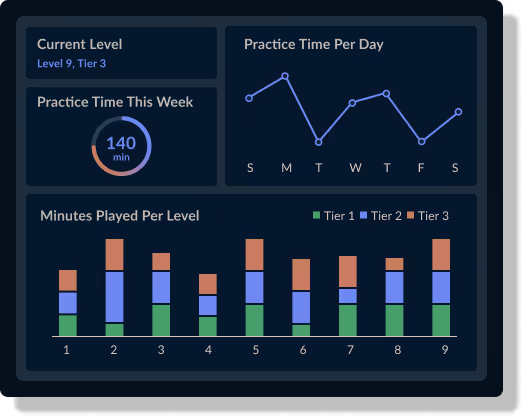
Conclusion
Unlike traditional music education environments and methods, the folks at MuseFlow, Inc. are committed to creating a safe, reliable space for you to learn and grow without the outside pressures of anyone looking over your shoulder. As students, we need to feel like we can fail without any judgment. MuseFlow inspires you to learn, motivates you to learn, all with artificial intelligence and machine learning as assistants in the background, listening and adjusting the sheet music to suit your needs without any judgement. MuseFlow answers the question “can I teach myself how to play piano with AI” with an emphatic YES! With its pattern recognition algorithms and music generation, MuseFlow’s AI is set to revolutionize music education for the better, and become the forerunner in the industry as the best new way to learn piano.

.svg)

.jpg)

